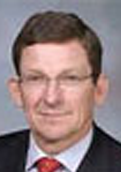The Bonn II Conference on Afghanistan: A Step Forward Amidst Uncertainty
Bonn II made it somewhat clear that there is at least an evolving discourse and a fleeting sense of realisation in Western capitals that Afghanistan cannot simply be abandoned once again.
- Vishal Chandra |
- December 19, 2011 |









